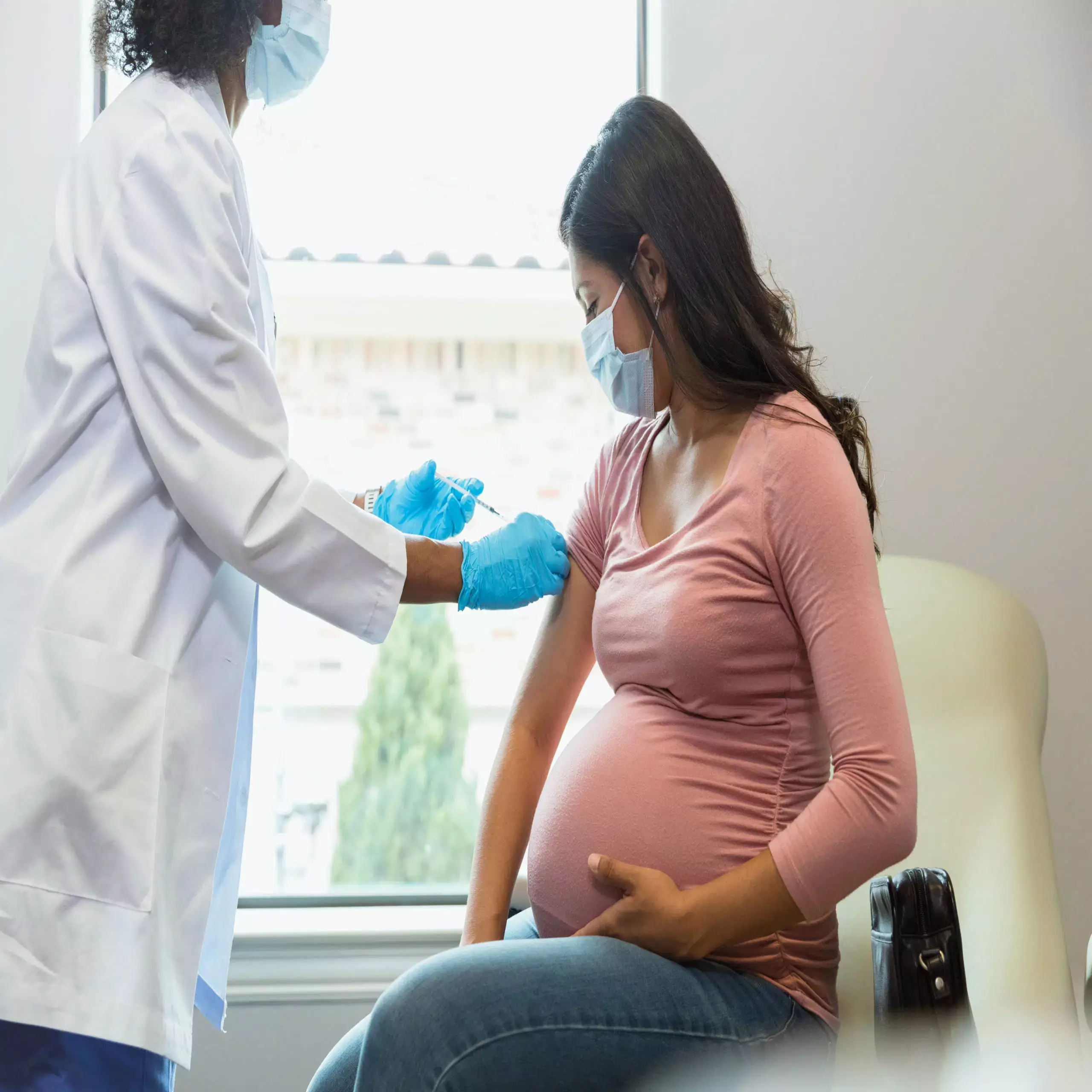In the era of the COVID-19 pandemic, the importance of vaccination cannot be overstated, particularly for vulnerable populations like pregnant women and their unborn children. Vaccines against the virus are not just an option; they’re an essential pillar in safeguarding maternal and neonatal health. As the data show, COVID vaccines are both safe and effective for individuals aged six months and older, making them a critical component in the quest for public health safety. In the United States, these vaccines are readily available and free of charge, providing an accessible pathway for families looking to protect their loved ones.
The journey towards a more ordinary life post-pandemic begins with individuals stepping forward to get vaccinated, especially those in high-risk categories. Expectant mothers particularly stand to benefit, as pregnancy inherently elevates the risk of severe illness from COVID-19. With no current plans for a vaccine designed specifically for infants under six months, getting vaccinated during pregnancy is a vital deterrent against serious health consequences for both mother and child.
Cutting-Edge Research Highlights Protective Benefits
The Centers for Disease Control and Prevention (CDC) and The American College of Obstetricians and Gynecologists (ACOG) advocate for early vaccination for pregnant women, emphasizing that receiving the vaccine “as soon as possible” is ideal. Recent studies have substantiated this call, revealing that mothers who receive mRNA vaccines during pregnancy can convey powerful immune protection to their babies. A notable study published in The Journal of the American Medical Association (JAMA) indicated that infants born to vaccinated mothers maintained significant antibody levels for up to six months. This contrasts starkly with infants born to mothers who had contracted COVID-19 without vaccination.
An exploration conducted at Massachusetts General Hospital has demonstrated that antibody titers in babies delivered from vaccinated mothers were markedly higher compared to those from unvaccinated, infected mothers. What’s compelling about these findings is not merely the statistics; they underscore an urgent message about the importance of maternal vaccination in public health strategies.
- *At two months, 98% of infants from vaccinated mothers showed detectable IgG levels.*
- *By six months, roughly 57% retained these levels, compared to a mere 8% from unvaccinated mothers.*
These outcomes compel an urgent conversation in healthcare forums, emphasizing the need for comprehensive education around the benefits of immunization during pregnancy.
Timing is Everything: Maximizing Maternal and Infant Health
While receiving the COVID-19 vaccine is critical, the timing of vaccination during pregnancy also matters significantly. According to a study that examined over 1,300 vaccinated pregnant women, it appears that administering the vaccine during the early third trimester can yield more robust immune responses in both mothers and their babies. Research suggests that weeks 20 to 32 of gestation optimally facilitate the transfer of protective antibodies from the mother to the fetus.
The differential impact of this timing reorients healthcare discussions about vaccine administration; it highlights that expecting mothers should not only get vaccinated but also consider the timing of their shots carefully. Delaying vaccination until closer to delivery may diminish the potential immune benefits for the infant.
The findings take on a new urgency when considering additional layers of complexity—such as previous infections. Mothers who had recovered from COVID-19 and then received vaccination showed elevated antibody levels compared to those who’ve been vaccinated without a history of infection. This knowledge offers an enhancement to our understanding of how maternal immunity operates, potentially influencing future guidelines on when and how to recommend vaccination for pregnant individuals.
Motivational Call to Action for Expecting Mothers
The stakes are high for pregnant women, who face increased risks from COVID-19 but also have the opportunity to boost their infants’ defenses against the virus. In light of delays in vaccine authorizations for infants under six months, the call to action for expecting mothers is crystal clear: get vaccinated, and if relevant, consider a booster in the optimal window to ensure the highest level of protection.
Galit Alter, PhD from the Ragon Institute of MGH, MIT, and Harvard, emphasizes that the overwhelming evidence should compel mothers to take proactive steps in safeguarding not just their health but that of their newborns. The immunization landscape may be evolving, but the emphasis on protecting the most vulnerable remains constant.
As communities work to reclaim a sense of normalcy, it is crucial to recognize that empowered individuals—those who seek out vaccines and ensure their protection—lay the groundwork for a healthier future. Through vaccination, expectant mothers are not merely protecting themselves; they are also fortifying the next generation against the uncertainties of a world that still wrestles with the implications of the COVID-19 pandemic.

